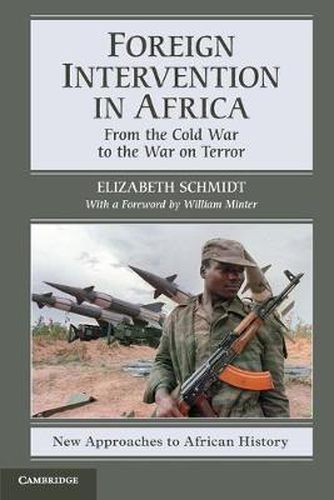Readings Newsletter
Become a Readings Member to make your shopping experience even easier.
Sign in or sign up for free!
You’re not far away from qualifying for FREE standard shipping within Australia
You’ve qualified for FREE standard shipping within Australia
The cart is loading…






Foreign Intervention in Africa chronicles the foreign political and military interventions in Africa from 1956 to 2010, during the periods of decolonisation and the Cold War, as well as during the periods of state collapse and the ‘global war on terror’. In the first two periods, the most significant intervention was extra-continental. The USA, the Soviet Union, China, Cuba and the former colonial powers entangled themselves in countless African conflicts. During the period of state collapse, the most consequential interventions were intra-continental. African governments, sometimes assisted by powers outside the continent, supported warlords, dictators and dissident movements in neighbouring countries and fought for control of their neighbours’ resources. The global war on terror, like the Cold War, increased foreign military presence on the African continent and generated external support for repressive governments. In each of these cases, external interests altered the dynamics of Africa’s internal struggles, escalating local conflicts into larger conflagrations, with devastating effects on African peoples.
$9.00 standard shipping within Australia
FREE standard shipping within Australia for orders over $100.00
Express & International shipping calculated at checkout
Foreign Intervention in Africa chronicles the foreign political and military interventions in Africa from 1956 to 2010, during the periods of decolonisation and the Cold War, as well as during the periods of state collapse and the ‘global war on terror’. In the first two periods, the most significant intervention was extra-continental. The USA, the Soviet Union, China, Cuba and the former colonial powers entangled themselves in countless African conflicts. During the period of state collapse, the most consequential interventions were intra-continental. African governments, sometimes assisted by powers outside the continent, supported warlords, dictators and dissident movements in neighbouring countries and fought for control of their neighbours’ resources. The global war on terror, like the Cold War, increased foreign military presence on the African continent and generated external support for repressive governments. In each of these cases, external interests altered the dynamics of Africa’s internal struggles, escalating local conflicts into larger conflagrations, with devastating effects on African peoples.